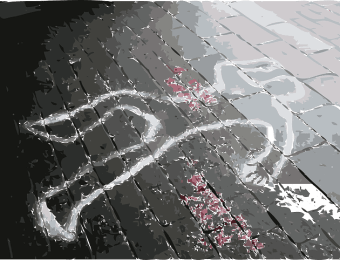
Benjamin Franklin, 1722 (photo: wikimedia.com)
Back in the distant epoch when I was a college student, I majored in journalism—not the sprightly “Communications” of today, but the old-fashioned stuff. One of the chief aims of my professors was to instill in us a healthy regard for the “free speech” clause of the First Amendment. Having recently read Ian McEwan’s meaty novel The Children Act, reviewed yesterday on this website, I was reminded to go back and read his commencement address to the Dickinson College Class of 2015 (complete address here), which explored some of the modern challenges to my professors and my old favorite.
In an era when the commencement speakers I usually hear about are the stars of Silicon Valley, Hollywood, and Comedy Central, an English novelist seemed a surprising choice. McEwan, of course, is no second-ranker. Shortlisted for the Man Booker Prize for Fiction numerous times, he won it for Amsterdam in 1998; his novels Atonement, Saturday, and On Chesil Beach have won numerous prizes. So one might assume the man had something to say. And what he wanted to say concerned free speech, which he clarified includes writing and reading, listening and, yes, thinking.
McEwan called free speech “the life blood, the essential condition of the liberal education.” It’s one almost unique to Americans, enshrined in the First Amendment not as “an empty phrase, as it is in many constitutions, but a living reality.” Enshrined, but not inevitable, and not maintained without respect for its essence, even its unpalatable manifestations. Free speech, he said, is perpetually under attack from all sides and viewpoints. “It’s never convenient, especially for entrenched power, to have a lot of free speech flying around.”
It’s more than just one of our many freedoms, it’s essential to all the others. Without it, he said, “democracy is a sham.” All our other freedoms need to be openly thought about, discussed, written into existence, and maintained through free discourse, by people of every discipline and calling.
In other countries, as news reports glaringly reveal, free expression and thought is under serious attack. That’s happening in the streets and on the Internet in the Middle East, Russia, Bangladesh, much of Africa, and the Great Firewall of China. But it cannot be taken for granted in the United States at a time of great polarization of public opinion along many social and political fault-lines, and when facing the unresolved challenges of the Internet—challenges to speech, privacy, and concentration of control in a few corporations.
McEwan suggested the graduates might reasonably conclude that “free speech is not simple,” and never an absolute. It has definable limits, but it’s also an error to reflexively label opinions one doesn’t agree with as “hate speech” or disrespectful. “Being offended is not to be confused with a state of grace; it’s the occasional price we all pay for living in an open society,” he said. And, lately, people advocating creation of “safe spaces” have become increasingly thin-skinned.
He closed with a tribute to the literary form of the novel, whose traditions, he believes, embrace pluralism, openness, and “a sympathetic desire to inhabit the minds of others.” Novels thereby build empathy with the situations and fortunes of people who may be unlike ourselves. “Take with you these celebrated words of George Washington: ‘If the freedom of speech is taken away then, dumb and silent, we may be led like sheep to the slaughter.’”



 She was Julia Child. She was Margaret Thatcher. She was Mamma Mia. And now Meryl Streep is Ricki Rendazzo, aging, nearly bankrupt rock singer living uneasily with a big consequential choice she made along the way—career over family (
She was Julia Child. She was Margaret Thatcher. She was Mamma Mia. And now Meryl Streep is Ricki Rendazzo, aging, nearly bankrupt rock singer living uneasily with a big consequential choice she made along the way—career over family (
 A panel at last weekend’s Deadly Ink 2015 conference represented a spectrum of views about the research lengths mystery writers go to. At the “as factual as possible” end of the spectrum was K.B. Inglee, a writer of historical mysteries who is also a history museum docent and reenactor (talk about living your research!), closely followed by Kim Kash, who seeks a realistic recreation of Ocean City, Maryland, where her fictitious characters and stories play and play out. Setting her mysteries there began when she wrote a tour guide for the city, a compilation of facts and contacts that has since served her well.
A panel at last weekend’s Deadly Ink 2015 conference represented a spectrum of views about the research lengths mystery writers go to. At the “as factual as possible” end of the spectrum was K.B. Inglee, a writer of historical mysteries who is also a history museum docent and reenactor (talk about living your research!), closely followed by Kim Kash, who seeks a realistic recreation of Ocean City, Maryland, where her fictitious characters and stories play and play out. Setting her mysteries there began when she wrote a tour guide for the city, a compilation of facts and contacts that has since served her well.


